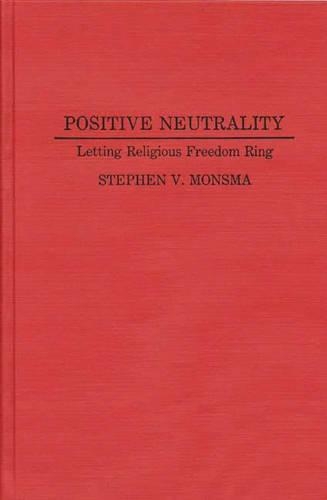
Positive Neutrality: Letting Religious Freedom Ring
(Hardback)
Publishing Details
Positive Neutrality: Letting Religious Freedom Ring
By (Author) Stephen Monsma
Bloomsbury Publishing PLC
Praeger Publishers Inc
10th December 1992
United States
Classifications
Tertiary Education
Non Fiction
Political structure and processes
Christianity
342.730852
Physical Properties
Hardback
304
Description
Church-state relations are becoming more and more critical. Deepening controversies over church-state relations, the increasing religious pluralism of American society and the changing make-up of the Supreme Court are forcing a rethinking of approaches to church and state in the public policy realm. Stephen Monsma offers an approach rooted in structural pluralism as a normative way to understand church-state relations. He suggests that the government should use a principle of "positive neutrality" in handling church-state relations. He aims to integrate historical, theoretical, social and legal perspectives, writing for interdisciplinary audiences of students, scholars and general readers. This study provides an historical background of church and state relations in American society and discusses the development of church-state theory and practice. The author argues that confusions today can be traced back to flaws in the disestablishment settlement of the 18th century, flaws which have come to light in the 20th century. He looks at this pluralist society and the concept of positive neutrality and of religious freedom historically and theoretically and then applies his approach to current issues relating to national policy and Supreme Court decision-making.
Author Bio
STEPHEN V. MONSMA, is a Professor of Political Science, at Pepperdine University. He is the author or editor of several studies dealing with religion and politics including Responsible Technology: A Christian Perspective (1986), Pursuing Justice in a Sinful World (1984) and American Politics (1976).
